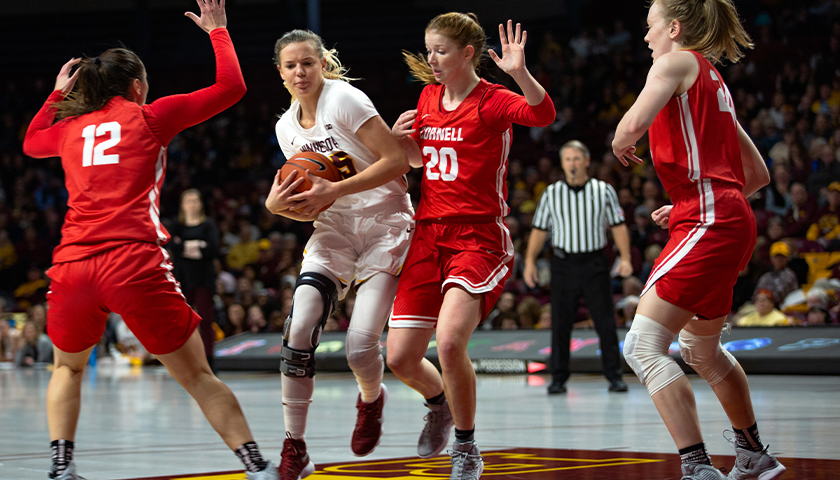by Ben Zeisloft
The NCAA signaled that it may pull championship games from places that stop biological males from competing in women’s sports.
The collegiate sports league released a statement on Monday reaffirming that it supports “the opportunity for transgender student-athletes to compete in college sports,” which is grounded in the value of “fair competition.”
“The NCAA has a long-standing policy that provides a more inclusive path for transgender participation in college sports,” continues the statement. “Our approach — which requires testosterone suppression treatment for transgender women to compete in women’s sports — embraces the evolving science on this issue and is anchored in participation policies of both the International Olympic Committee and the U.S. Olympic and Paralympic Committee.”
The statement closed by saying that “only locations where hosts can commit to providing an environment that is safe, healthy and free of discrimination” should be selected for championship events.
Presumably referring to states’ moves to stop biological males from competing in girls’ and women’s sports, the NCAA stated that it will “continue to closely monitor these situations to determine whether NCAA championships can be conducted in ways that are welcoming and respectful of all participants.”
Many conservative-leaning states, such as Mississippi and Idaho, are moving to protect female athletes’ capacity to compete against members of their own sex.
Surveys indicate that the general American public by no means agrees with the NCAA’s decision.
According to a recent Politico poll, the majority of Americans support banning biological males who claim a transgender identity from competing against women. The results indicated that 53 percent of registered voters would support such a policy.
Elizabeth Najjar — a Campus Reform correspondent and rugby player at Norwich University — is staunchly against the NCAA’s policy.
“Especially in a sport like rugby, having biological males play against females can cause serious injury and it also takes away athletic opportunities for females,” she explained.
Najjar added that “many females seek athletic scholarships and opportunities out of high school to play at a higher level, and now high schools are allowing biological males to compete in girls sports.” She fears that “the NCAA doing the same thing is directly going against women and taking away opportunities from female athletes.”
Campus Reform reached out to the NCAA for comment; this article will be updated accordingly.
– – –
Ben Zeisloft is a Pennsylvania Senior Campus Correspondent, reporting on liberal bias and abuse for Campus Reform. He is studying Finance and Marketing at the Wharton School of the University of Pennsylvania. Benjamin also writes for The UPenn Statesman and the Wharton International Business Review.
Photo “Women’s basketball game” by Lorie Shaull CC 2.0.




